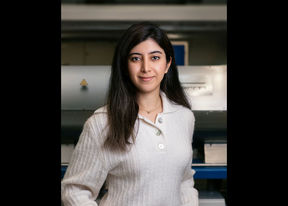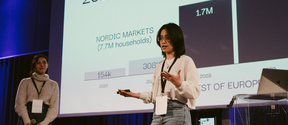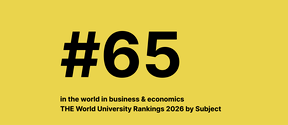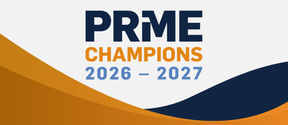Sahar Babaeipour dreams of entrepreneurship – but before that, she wants to graduate as a doctor

Master’s degree studies in chemical technology at Aalto University attracted Babaeipour to Finland two years ago. She had already found her area of interest when studying for a bachelor’s degree in polymer technology in Iran, but at Aalto University, her knowledge expanded to bio-based materials.
‘I wanted to come to Aalto because the university is looking for answers to develop a sustainable environment, and other sustainable solutions. I was definitely also tempted by Aalto’s entrepreneurial spirit. My future dream is to become an entrepreneur. That’s why I want to graduate as a doctor.’
In her doctoral research, Babaeipour is developing durable coatings for textiles and packaging based on lignin, a by-product of cellulose. The goal is to reduce the use of fossil-based and non-degradable packaging materials and hazardous chemicals used for dyeing textiles.
‘The purpose of the lignin-based coating is to improve the quality of packaging materials and textiles. The coating should protect materials from dirt, sunlight, water and bacteria.’
There are many challenges ahead. In addition to innovativeness and systematic thinking, a life-cycle perspective is needed to overcome them.
‘For me, doctoral research is not just about science, but I want use it to influence industry. We need to think about things in the long run and be aware of what happens to materials after they have been used: how biodegradable the materials are and whether their reuse is economically viable.’
Learning skills for the world of work and entrepreneurship
For Babaeipour, doctoral research is an opportunity to break the boundaries of science, but it is also something more:
‘As a doctoral student, I am motivated by the fact that I constantly learn new skills. I learn about project management and networking, and to solve different problems and work in cross-disciplinary teams. All of these skills will be needed in the world of work after I have completed the degree.’
She hopes that one day she will be able to commercialise her current research. The doctoral programme of Aalto University’s Bioinnovation Center provides great resources for this.
‘If you want to develop a product, it is important that you are surrounded by different views of the world around you. In the doctoral programme, we all come from different backgrounds and countries. It is great that we can work together and continuously learn from each other.’
In Finland, Babaeipour values the peaceful atmosphere, people’s responsible attitude towards their work, and the appreciation of studying.
‘The university provides a good environment for learning, respects the students and is open to their opinions.’
So far, Babaeipour has been kept busy with the early stages of her postgraduate studies and doctoral dissertation, but when she has some time off, sports and music are her beloved hobbies. Finnish studies are also important.
‘If I want to work as an entrepreneur in Finland, I have to know the language and culture of this country. Finnish is difficult, but I want to learn how to use it.’
Text: Marjukka Puolakka.
Aalto University Bioinnovation Center
To achieve human wellbeing in planetary boundaries, we need new sustainable solutions to wisely use our natural resources. The Bioinnovation Center especially focuses on innovations in sustainable bio-based materials, with special focus on textiles and packaging.

Read more news

Aalto University to host INNOVA Europe 2026 Grand Final in Espoo
Aalto University will host the INNOVA Europe 2026 Grand Final in Espoo, bringing together leading student-led startups from European universities.
Finnish AI Region Secures Second Term with Top Marks from EU
Finnish AI Region (FAIR) EDIH has been selected to continue operations for a second term with excellent ratings. European Union continuation funding enables service expansion from the beginning of 2026. Aalto University is one of 10 partners in FAIR.
Business & economics and computer science ranked in top 100 globally
The Times Higher Education ranking measures universities with 18 indicators, including international research and citations






